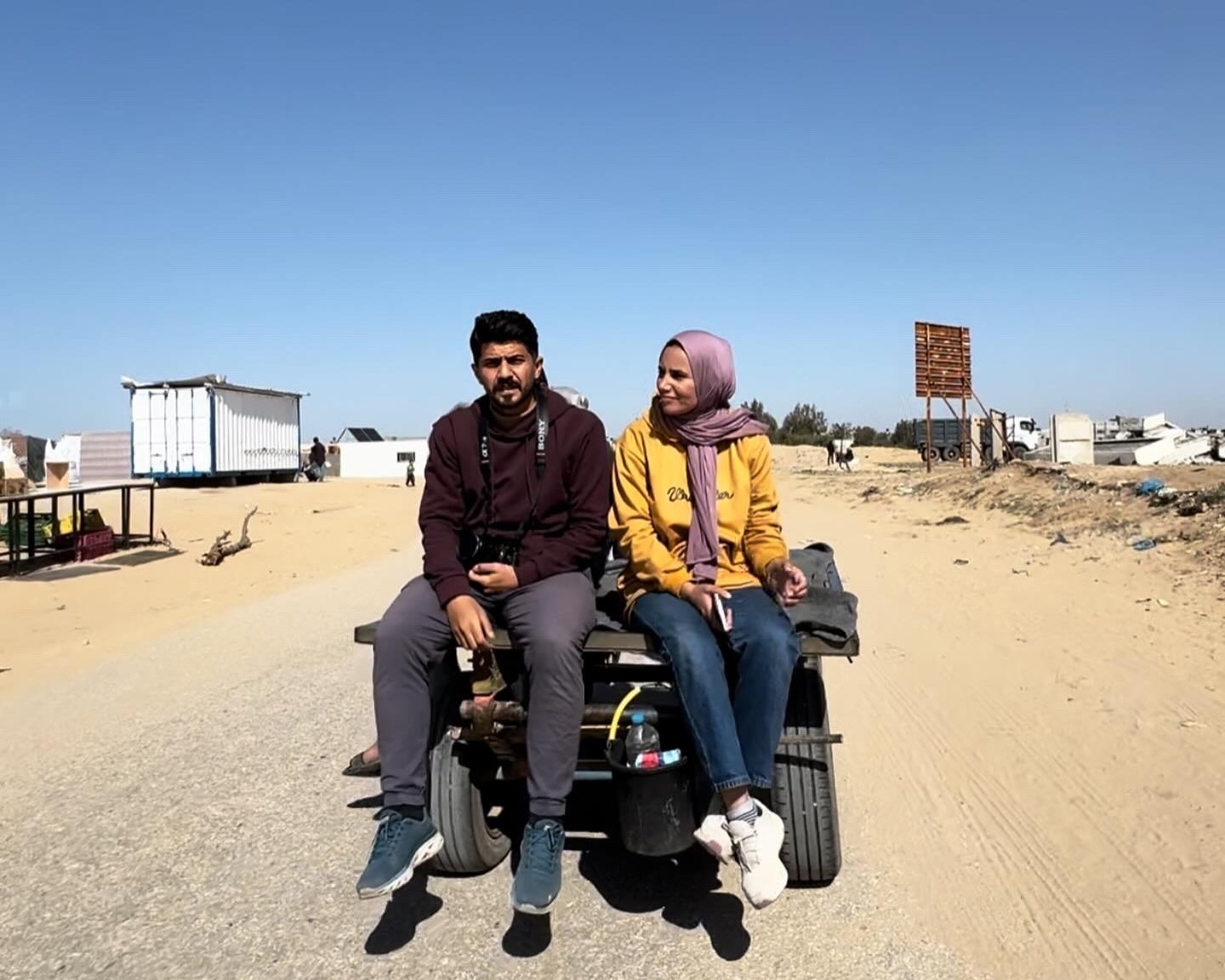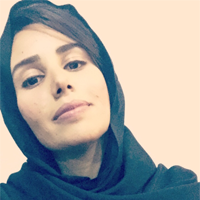What takes precedence: feeding a hungry child or providing professional coverage of a genocidal war? Journalist Marah Al Wadiya shares her story of balancing motherhood, displacement, psychological turmoil, and the relentless struggle to find safety in an unsafe region.
I don't know where to begin. Should I start by talking about my role as a journalist covering the Israeli war on Gaza, as a displaced person, or perhaps as a wife to a fellow journalist?
I have long known that working in journalism comes with a hefty price, paid by us journalists in terms of our mental and physical health. This is especially true in Gaza, which presents an exceptional model of coverage. Since 7 October 2023, the death toll of journalists has reached 133, according to the Government Media Office.
Balancing personal safety with continuous coverage was incredibly difficult, eventually leading us to the southern part of Gaza.
From the very first moments of the "Al-Aqsa Flood" operation, we knew that an apocalypse was about to befall Gaza. Palestinians typically prepare a "war bag" containing their identification papers, some money, and savings in case they are forced to evacuate their homes quickly. However, my story, like many others, was different.
My husband, Anas Abu Diya, and I are both digital journalists with Al Jazeera Network. We live in the "General Security" area or Intelligence Street in the northwest of Gaza City. We were forced to evacuate our home at dawn on the third day of the war, amidst unprecedentedly intense airstrikes, even by the tragic standards of previous conflicts.
Palestinians typically prepare a "war bag" containing their identification papers, some money, and savings, in case they are forced to evacuate their homes quickly. However, my story, for instance, was different.
What does a "war bag" mean for journalists? For us, it means our work equipment: cameras, laptops, and other recording devices. These are our most valuable possessions from our now-destroyed home. We consider them akin to our children, prioritising them over clothes, essentials, and many treasured items that are now just memories.
We move within Gaza like other displaced Palestinians, from one place to another, carrying our equipment as we run. We fear leaving it in the car, so we keep it close, even in cramped spaces. Balancing personal safety with continuous coverage was incredibly difficult, eventually leading us to the southern part of Gaza. We secured Omar and then set off.
Palestinians typically prepare a "war bag" containing their identification papers, some money, and savings, in case they are forced to evacuate their homes quickly. However, my story, for instance, was different.
For a moment, having a child between two journalists felt like a burden. We live in constant tension, with our fears doubling each time we go out to report—not for ourselves but out of fear that a strike might harm him or that our families and loved ones, who are also concerned about us, might be targeted. What heightened this fear is Israel's aggressive targeting of journalists and their families this time.
None of us are safe from their thirst for our blood. Some days, I felt that if I didn't die from the bombings, I would die of a heart attack due to the terrifying sounds that struck deep into our hearts. I try to suppress my emotions and reassure those around me. Often, fear shows on my face, and instead of comfort, some "strong" individuals around me would say, "A journalist, and you're scared?" Can't a journalist be afraid?
I deprived myself of water many days to save it for him, of my share of bread for his sake. This is what I can provide, along with emotions I refuse to express so he doesn't see me breaking down.
In my line of work, I am passionate about seeking human stories and paying close attention to the details of loss.
As for the exceptional nature of this coverage since October 7, Israel completely closed the crossings with Gaza, preventing the entry of food, medicine, and fuel, bombing power stations, and cutting off communication and the internet for periods extending over a week.
Transportation was unavailable due to fuel and petrol shortages. We had no professional safety equipment; no vests, helmets, or even a small first aid kit. Anas and I walked long distances under the threat of bombardment, carrying our filming equipment on our backs, and felt fortunate when we found a cart pulled by animals to take us to a shooting location. Our exhaustion was secondary to our determination to reach our destination, despite the lack of safety.
In truth, I cry silently without tears, feeling that God holds me with His care and keeps me together, but I don't know how my breakdown will eventually unfold.
The conditions were unsuitable for work, but it is our job, one we are proud of and that people see as a necessary platform to tell their stories! We refuse to let the victims become mere "numbers" in the unending death toll of this war that imposes the heaviest burdens one can live through. We chose journalism and will not hesitate to continue, even in the darkest circumstances, albeit within our current limitations.
In a somewhat humorous twist, the shelters, mainly schools, became places for us to charge our phones, laptops, and camera batteries, as they received limited hours of electricity, unlike tents and homes that survived the bombings.
Transportation was unavailable due to fuel and petrol shortages. We had no professional safety equipment; no vests, helmets, or even a small first aid kit.
In our displacement, no two days are alike. Each day has multiple phases, beginning with securing water, regardless of its quality, just enough to wash our grim, pale faces under the long-lasting bombardment. Then comes the search for bread and food, lighting fires for cooking due to the gas shortage.
I recall one day when I woke to my child asking for a piece of bread. We had none, and he wouldn't accept that. Our fellow displaced people awoke to his rising voice, everyone searching for a piece of bread perhaps left in a kitchen corner, but to no avail. We tried to appease him with biscuits dipped in tea, but he refused. How could Omar, a four-year-old, understand the starvation imposed upon us by Israel? He certainly couldn't.
I deprived myself of water many days to save it for him, of my share of bread for his sake. This is what I can provide, along with emotions I refuse to express so he doesn't see me breaking down. In truth, I cry silently without tears, feeling that God holds me with His care and keeps me together, but I don't know how my breakdown will eventually unfold.
It feels as if I was born in war. I lived through it. I died in it. I die in it every day and come back to face new rounds of escalation, siege, and war, up to the present day. The same stories. The same enemy. The same tragedy. Killing, displacement, destruction, and starvation; this is Israel, leaving us no room to live a single day without sorrow.
"We are not okay"... is the least that can be said after over 200 days of covering the occupation's war on Gaza. This is my message to anyone outside Gaza who asks me, "How are you?" This is how I answer you in my heart, so don't believe each time I lied to you and said I was “fine”.








































